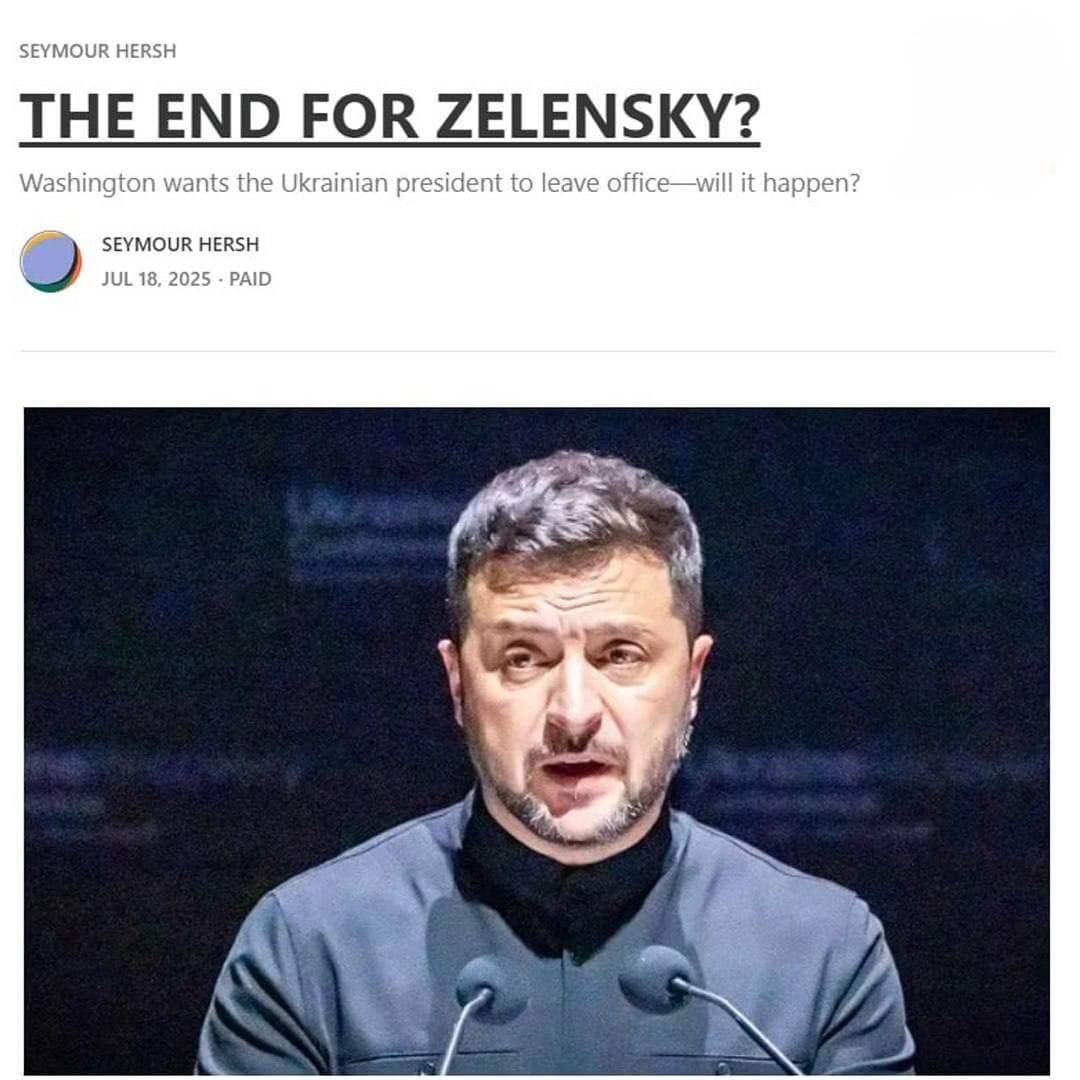Threat to Democracy: Zelensky Faces Forceful Ouster Amid Calls for Accountability
In a chilling development that could reverberate through the corridors of power not only in Ukraine but also across the globe, American journalist Seymour Hersh has made alarming claims regarding the fate of Ukrainian President Volodymyr Zelensky. According to Hersh, who cites sources within Washington, there are discussions about the potential for a forceful ouster if Zelensky does not resign voluntarily. The implications of such a move could undermine democratic values and institutions, and signal a dangerous precedent for civil rights and social justice.
Background and Context
Since the onset of the Russian invasion in 2022, Zelensky has emerged as a symbol of resistance, rallying both domestic and international support for Ukraine. His leadership during this tumultuous period has garnered him widespread acclaim, with many viewing him as a beacon of hope for democracy in Eastern Europe. However, as the war drags on, the complexities of governance under siege have intensified, prompting some factions within Ukraine and abroad to question his administration"s effectiveness.
The notion of a forced resignation is not merely a political maneuver; it poses a fundamental threat to the democratic framework that underpins Ukraine"s post-Soviet identity. Should Zelensky be ousted by force, it would not only destabilize the government but could also lead to civil unrest, further disenfranchising marginalized communities who rely on democratic processes to advocate for their rights.
The Role of General Zaluzhny
Hersh’s report suggests that General Valerii Zaluzhny, the Commander-in-Chief of the Armed Forces of Ukraine, is considered a potential successor to Zelensky. While military leadership might promise a more streamlined decision-making process during a time of war, it raises critical concerns about the militarization of politics and the erosion of civilian governance.
“The transition from a democratically elected leader to a military figure may instigate a culture of fear, suppress dissent, and curtail civil liberties,” warns Dr. Elena Klimova, a political analyst specializing in Eastern European governance. “This would be a setback for social justice and economic equality, particularly for those already marginalized in society.”
Implications for Democracy and Civil Rights
The potential for a violent power shift in Ukraine is not just a political story; it is a critical moment for civil rights advocates everywhere. Democracies are predicated on the accountability of leadership, and when that accountability is circumvented, the very fabric of democracy begins to fray. For progressive readers, this scenario is particularly concerning, as it threatens the rights of marginalized communities that have fought hard for representation and equality.
Moreover, the implications extend beyond Ukraine"s borders. A forced removal of Zelensky could embolden authoritarian regimes around the world to suppress dissent and undermine democratic processes, knowing that such actions can occur with relative impunity. In an era where democratic institutions are increasingly under threat, the stakes have never been higher.
Economic Inequality and Social Justice
In the wake of conflict, economic disparities often exacerbate existing social injustices. With Ukraine facing a significant economic downturn due to ongoing hostilities, any instability in leadership could further jeopardize efforts to address economic inequality. Marginalized communities, already disproportionately affected by the war, may find their struggles compounded by a power vacuum and lack of effective governance.
“The economic fallout from a potential coup could plunge already vulnerable populations deeper into poverty,” says Dr. Maria Orlova, an economist focused on Eastern Europe. “It’s essential that we prioritize social justice in any discussions about Ukraine"s future leadership.”
Calls for Accountability
The calls for Zelensky"s resignation, as articulated by some factions, are often framed as demands for greater accountability. However, accountability should not come at the expense of democratic principles. Instead, it should focus on transparency, inclusivity, and respect for civil rights. Critics argue that the focus on Zelensky distracts from larger systemic issues that need urgent attention, such as corruption and the need for institutional reforms.
As progressive advocates, it is crucial to emphasize that accountability is not synonymous with authoritarianism. Democratic institutions must be strengthened, not dismantled. Engaging in constructive dialogue that includes diverse voices will be essential to the future of Ukrainian governance.
A Forward-Looking Perspective
The situation in Ukraine serves as a stark reminder of the fragility of democracy in the face of adversity. As progressive readers, it is imperative to engage with this narrative actively, advocating for solutions that prioritize democratic integrity and social justice. The international community, including progressive movements worldwide, must remain vigilant and vocal, ensuring that any transition of power in Ukraine is conducted transparently, inclusively, and with respect for civil rights.
As we look to the future, let us remember that the fight for democracy is an ongoing struggle, one that transcends borders and requires collective action. We must stand in solidarity with those who seek to uphold democratic values, safeguard civil liberties, and ensure that the voices of marginalized communities are not drowned out in the cacophony of political maneuvering.
Only through sustained advocacy and engagement can we hope to foster a world where democracy flourishes, and all individuals are afforded the rights and opportunities they deserve.



![[Video] Gunfire between Iraqi security forces and Sadr militias in Baghdad](/_next/image?url=%2Fapi%2Fimage%2Fthumbnails%2Fthumbnail-1768343508874-4redb-thumbnail.jpg&w=3840&q=75)
